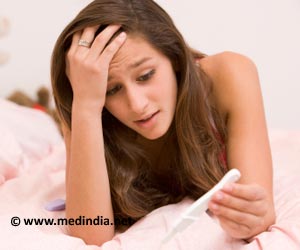A statutory body in the UK has warned childless women against traveling abroad to have up to four embryos implanted in their wombs.
A statutory body in the UK that regulates clinics facilitating artificial insemination has warned childless women against traveling abroad, who have up to four embryos implanted in their wombs, insisting that they may damage their own health as well as expose their babies to harm by doing so.
Professor Lisa Jardine, who chairs the Human Fertilization and Embryology Authority (HFEA), pointed out that the "embryo tourists" were going overseas to circumvent rules on multiple IVF births, expecting to have triplets or quadruplets.She said that not only the practice involves several health risks, but it also increases burden on the NHS by making women pregnant with more than one baby.
She revealed that it was being investigated how to tackle the practice.
"It is our job to make sure that this deeply felt need (for a child) does not result in people putting their health at risk," Times Online quoted her as saying.
"People who seek treatment outside the UK often do so because they believe this will allow them to make choices about their treatment which are not available in the UK. These might include selecting the sex of their baby for non-medical reasons, or having a higher number of embryos transferred, inspite of the widely recognized risks associated with multiple pregnancy.
"My deep concern is that, in the belief that they are widening their choices, such people are also removing themselves from the help and protection that responsible regulation provides. We are looking closely at whether there is more we could do to protect and inform those who choose to travel abroad for fertility treatment," she added.
Advertisement
However, the HFEA has introduced quotas on the percentage of multiple births permitted at each clinic to make single embryo transfer the norm.
Advertisement
"The reality of a premature delivery is, babies born need neonatal intensive care and run the risk of either sadly dying or being left with a significant handicap such as cerebral palsy," he added.
Source-ANI
ARU








